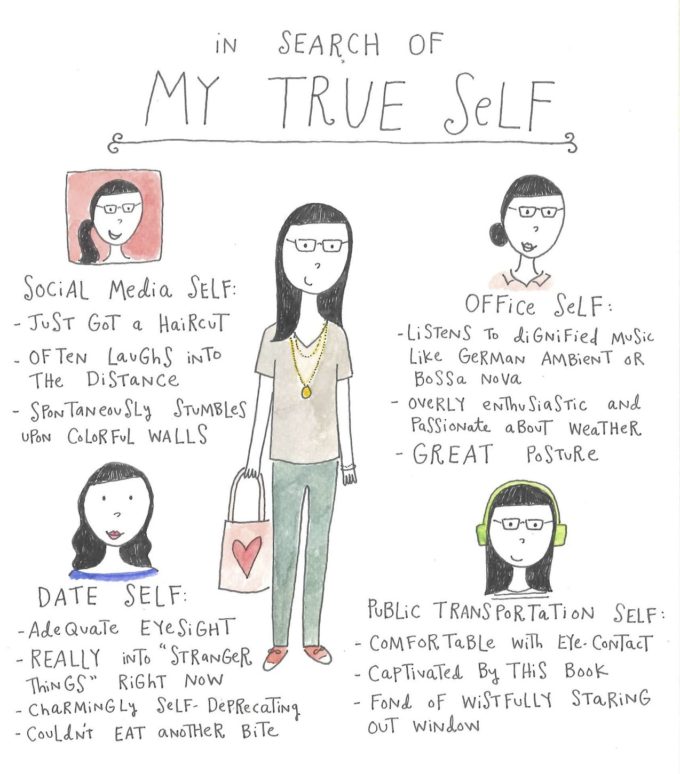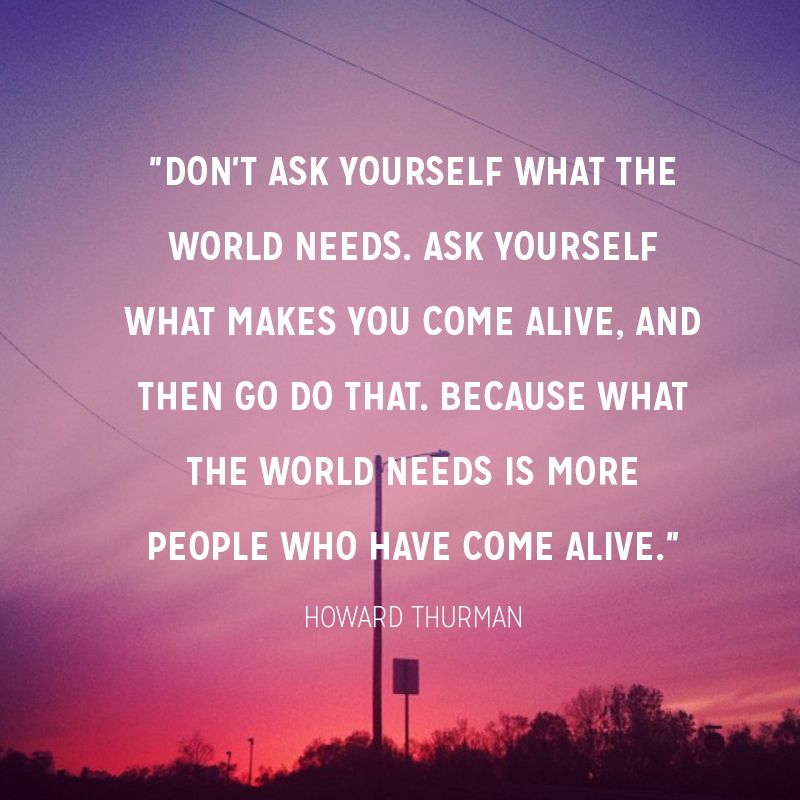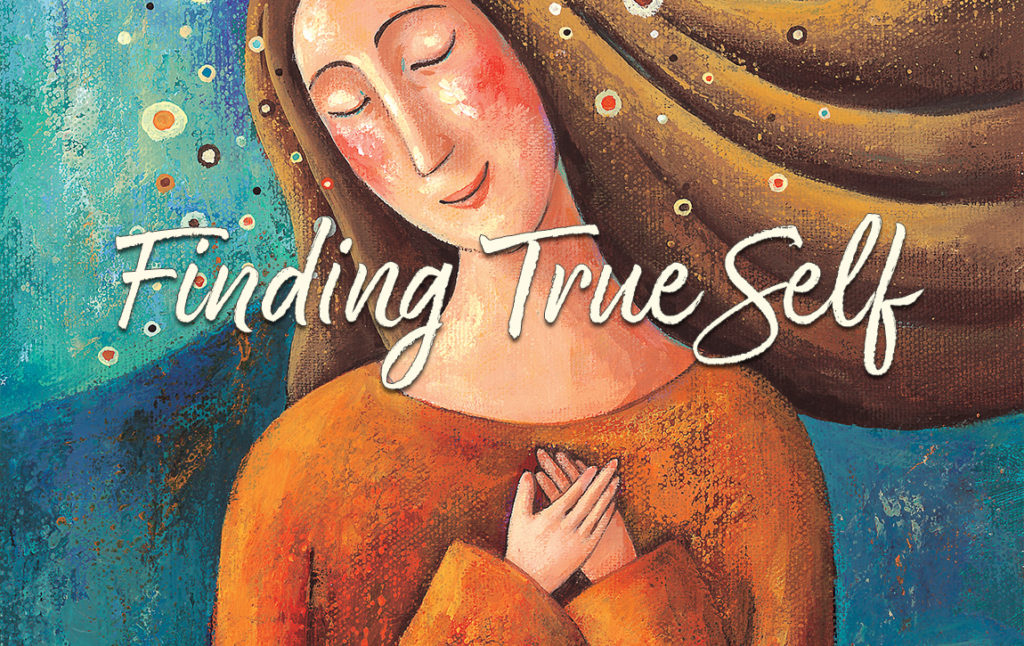
Being true to yourself is not just a cliché, it’s a practice and a state of awareness we need to cultivate and evolve actively. It means stepping away from the societal labels that are placed on us and embracing a deeper aspect of who we are. These five basic steps will help you get to know your true self. (Estimated reading time: 6 minutes)
“You were born an original. Don’t die a copy.”
— John Mason
Beliefs define how we see and act in the world. We have beliefs about virtually everything—relationships, family, politics, religion, entertainment, global warming, etc. Belief is what makes us human. It’s the foundation on which we build our lives.
Most importantly, our beliefs tell us who we are. They provide a personal, autobiographical narrative that anchors our identities and cements our place in the world.
The way most people see themselves is derived from conventional societal labels based on education, jobs, relationships, possessions, appearance, family history, race, culture, and religion.
In his book, “A New Earth: Awakening to Your Life’s Purpose,” spiritual teacher Eckhart Tolle confirms this. He says that our ego, the part of our mind that controls our thinking and behavior, creates an identity based on our worldly status. We use these labels to distinguish ourselves from others.
While knowing who we are, on a superficial level, is necessary to fulfill our daily responsibilities, it becomes problematic if we allow those labels to define us. Tolle says that the ego does not represent our true being. Instead, our true being is the essence of who we are and has nothing to do with how we’re portrayed and seen in the physical plane.

Depending on how self-aware you are, you may have had several experiences where you encountered your true self. Perhaps it was through a stroke of creative insight or a sense of timelessness when taking a walk in the wilderness. It might even have been a time when you were swept with feelings of unconditional love.
The true self represents the deeper part of you that originates from your soul essence, which Tolle refers to as “Being.” It’s the part of you that is free from social, cultural conditioning, old memories, emotional ups and downs, and the influence of others. Your Being is found in times when you are still and aware of the aliveness in the present moment.
The true self exists in a deeper dimension because at our core we are, as French philosopher Pierre Teilhard de Chardin said, “spiritual beings having a human experience, not human beings having a spiritual experience.”
This self-knowledge is non-verbal and intuitive—it’s derived from a sense of knowing, rather than the tangible reality we perceive through our minds and senses.

Perceiving our true selves is ambiguous and esoteric for most people. They are too attached to the “I” that has formed from their ego-knowledge. It’s the way society has conditioned us to think. Even if we wanted to connect deeper with our true selves, the hectic, busy, and overstimulated environments of modern day life makes it hard for us to do that.
Economic, social, and cultural structures can place us in predetermined groupings, limiting our identities to a few checkboxes. The world wants you to be like everyone else because it’s convenient. It’s so much easier to follow the crowd and adhere to “group mentality” because of our intense desire to belong, and the convenience and comfort it offers. That’s why it takes a strong person to walk away from these ready-made personas in favor of their true self.
Rejecting the social roles that don’t feel true to us is a defining trait of almost every successful person who has made their mark on history—Steve Jobs, Nelson Mandela, Malala Yousafzai, and Oprah Winfrey (to name a few). Their true selves informed the choices they made, and it brought them to a place of success that felt authentic to who they are and what they stand for.

“Being true to yourself” is not just a cliché. It’s a practice and a state of awareness we need to cultivate and evolve actively. There are plenty of tools and sophisticated theories available to engage in the self-discovery process. These five fundamental steps will help you get to know your true self better:
1. Know your values and mission: All of us have core values like “freedom,” “creative expression,” “generosity,” “exploration,” and so on, that play a significant role in our everyday and long-term decisions. Make a list of the top 5-8 values that guide you and determine how you can use them to create the life you want. These values can help you fulfill your mission, your soul purpose, or your dharma.
Your dharma is a vital component of your spiritual DNA. It’s the reason you were born and what you’re here to accomplish. Your dharma and career might not always align, but it could be realized through your passion projects.
2. Get real about your strengths and weaknesses: Getting to know yourself includes having a realistic picture of who you are, knowing the parts you’re proud of, and the areas where you struggle from time to time. This might be the most challenging because it requires you to take an honest look at your capabilities.
It will benefit you in the long run because it gives you the opportunity to identify and downplay activities you’re not good at and use that energy to work on the things at which you perform better.
3. Pay attention to what lights you up: Excitement is a clear sign of an interest that lights you up. Whether it’s playing basketball, collecting stamps, or gardening, if it resonates, it says something about your true self. Connecting your mission with your passion produces continuous effort and commitment, no matter what obstacles you face along the way. If your passion is not immediately evident, focus on the things that pique your curiosity.
In her book, “Big Magic,” writer Elizabeth Gilbert says that curiosity is a modest spark that is accessible to everyone when we’re not able to identify what our passions are.
4. Cultivate a regular practice of stillness: Scheduling prolonged periods of silence and reflection clears space for our true self to emerge. It quietens the internal chatter and the noise in our environment so that we can focus on every facet of our lives and evaluate how we feel about them. We don’t have to go on fancy retreats to achieve this.
We can do it from the comfort of our own homes. Create regular sessions where you can spend time on contemplative activities like journaling, walking in nature, meditating, etc.
5. Get feedback from others: No matter how self-aware we are, we’ll always have a distorted perception of certain facets of our identities. Developing blind spots is natural, and it happens for many reasons—we get preoccupied with fulfilling the expectations of others, we lose touch with our feelings because we go through tough times, we suffer from a sense of grandiosity or low self-esteem. Checking in with people who are credible and unbiased in their assessments will balance out our self-image and give us an outside perspective of our behavior and performance.
Developing a deeper understanding of who we are is a life-long effort. As we go through life, we gain more insight into our characters. The person we knew ourselves to be in our 20’s transforms into a new person as we age. Be open to your personal evolution with each passing year, but stay anchored in the essence of who you are—your true self.
All my best on your journey,
Seline

Question for you: What kinds of activities help you know your true self? What have been your biggest breakthroughs?
Did you like this post? Sign up below, and I’ll send you more awesome posts like this every week

Have Your Say